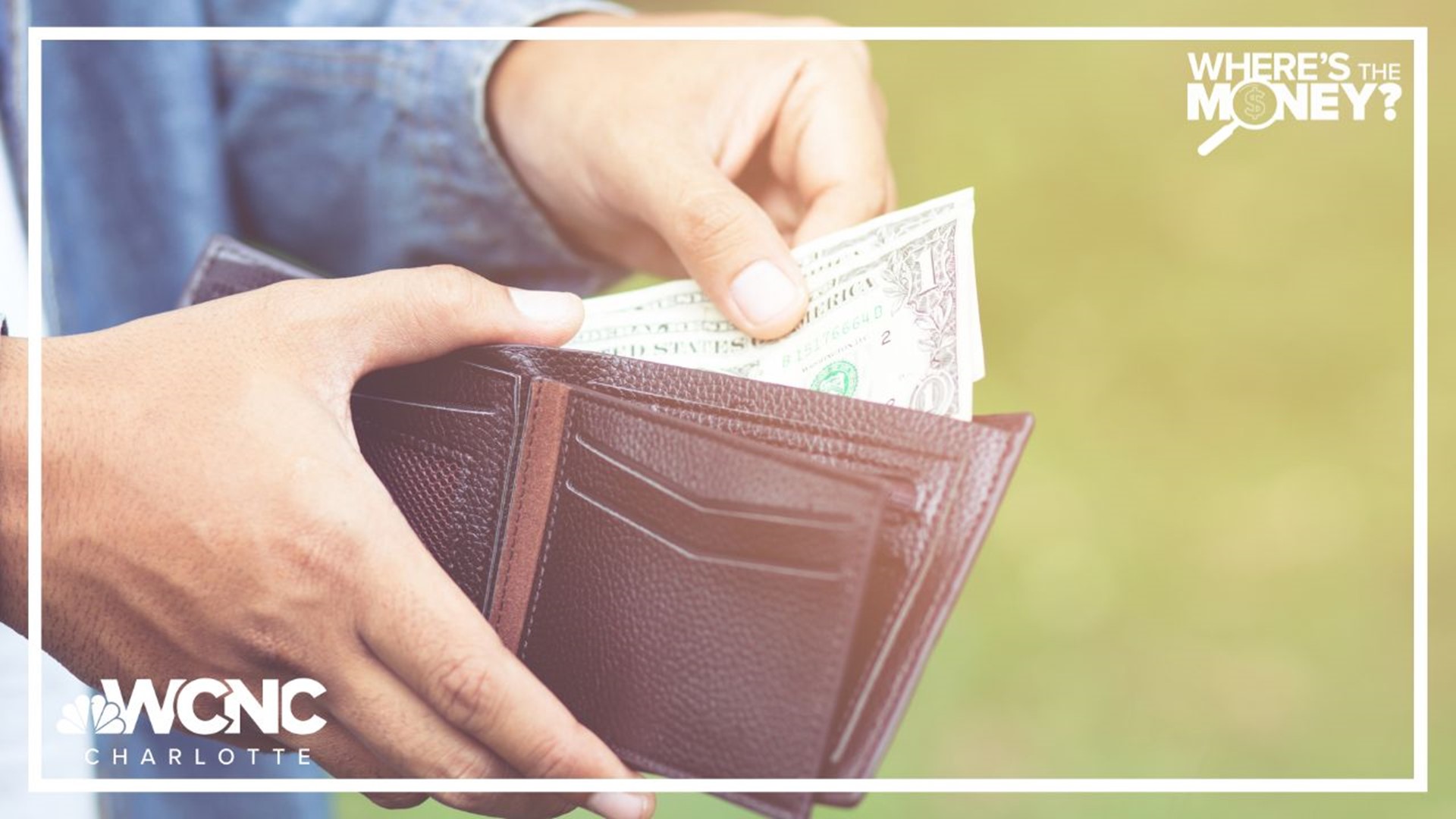CHARLOTTE, N.C. — Think about the last few times you went to the grocery store or stopped at a gas station. Did you pay with cash or card?
A lot of small businesses are hoping more customers start using cash instead of their cards for every little purchase. It has to do with something retailers pay called a "swipe fee." That's when someone buys an item or service with a credit card.
The cost is usually 2% to 2.5% of the purchase. That money is split at least three different ways. The credit card for processing the sale, the bank that issues the credit card and some may be kicked back to the buyer in the form of a reward. These cash-back deals are pretty common.
Some businesses will try to cover the cost of swipe fees with surcharges, requiring customers using a credit card to pay for the fee themselves. Others opts to raise their prices on menus or other items. This pushes the cost to everyone, even if you pay with cash.
It's a trend that many people have picked up on and they're calling it the "Reverse Robinhood" effect. If businesses make their items more expensive for all customers, those paying with cash contribute to not only covering the swipe fees, but also the cost of people who get discounts through credit card rewards programs.
The "Robinhood" aspect comes from NPR saying it's usually lower income people that use cash while higher income folks use credit. Basically, NPR's analysis shows that "lower-income cash customers are effectively subsidizing the airline tickets, resort stays and other rewards that go to better-off card users."
Contact Kia Murray at kmurray@wcnc.com and follow her on Facebook, X and Instagram.
WCNC Charlotte's Where's The Money series is all about leveling the playing in the Carolinas by helping others and breaking down barriers. WCNC Charlotte doesn't want our viewers to be taken advantage of, so we’re here to help. Watch previous stories where we ask the question “Where’s the Money” in the YouTube playlist below and subscribe to get updated when new videos are uploaded.

